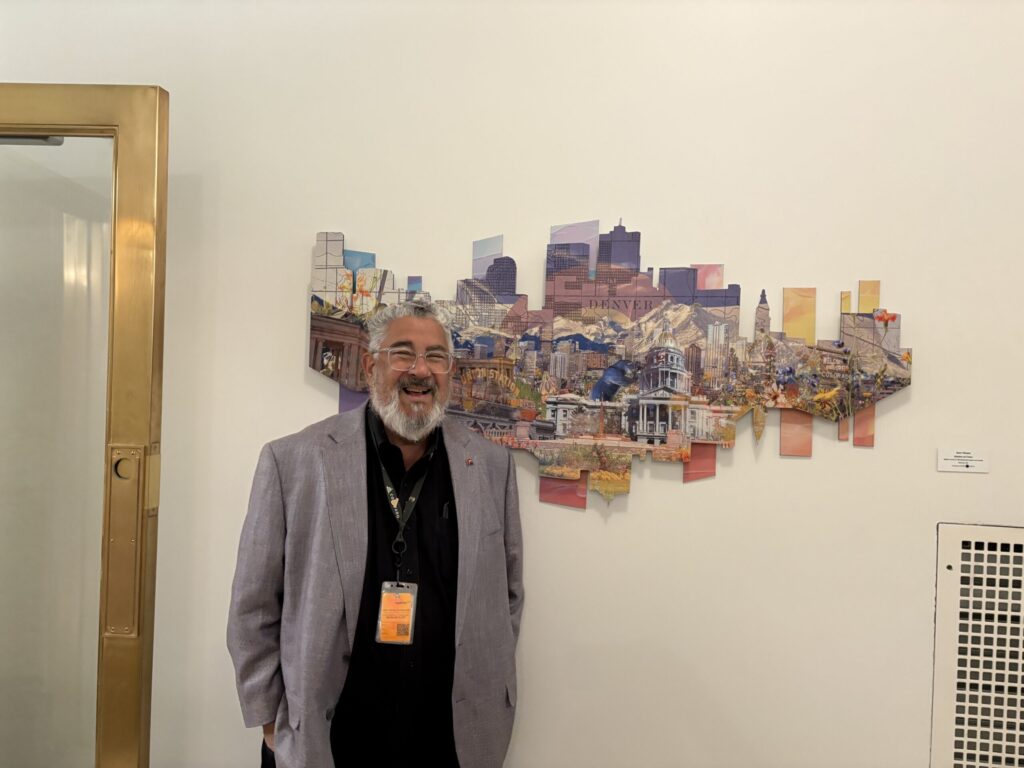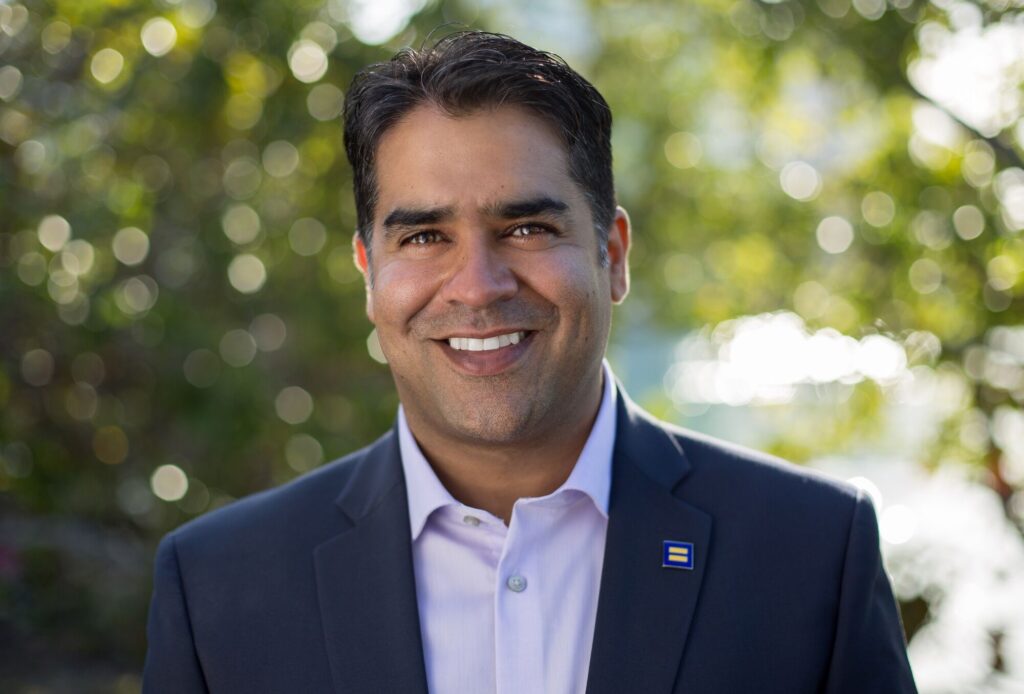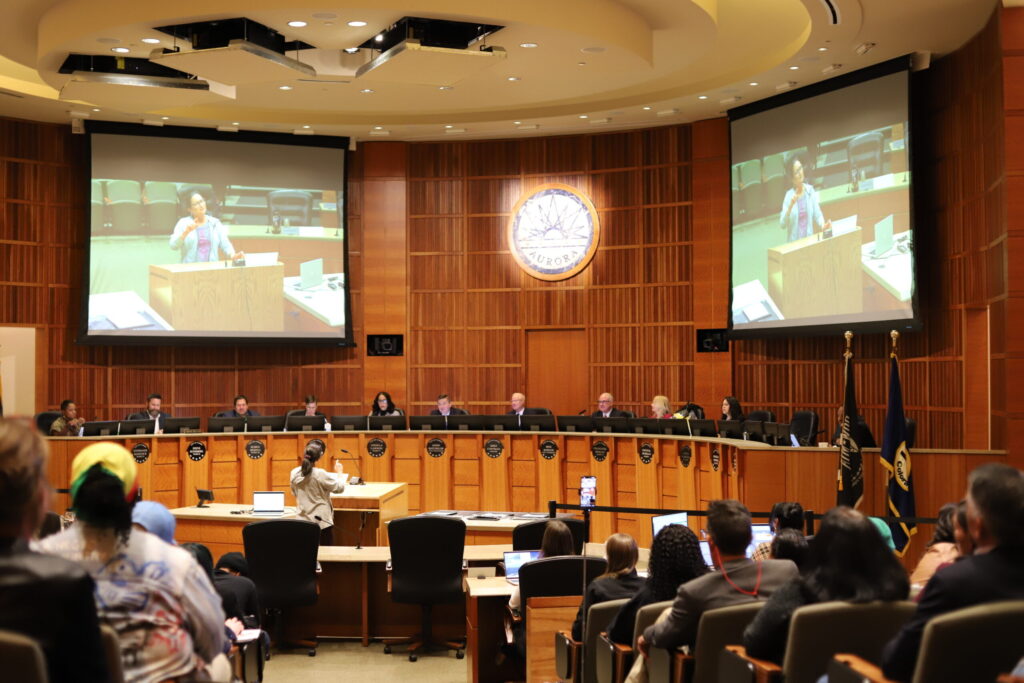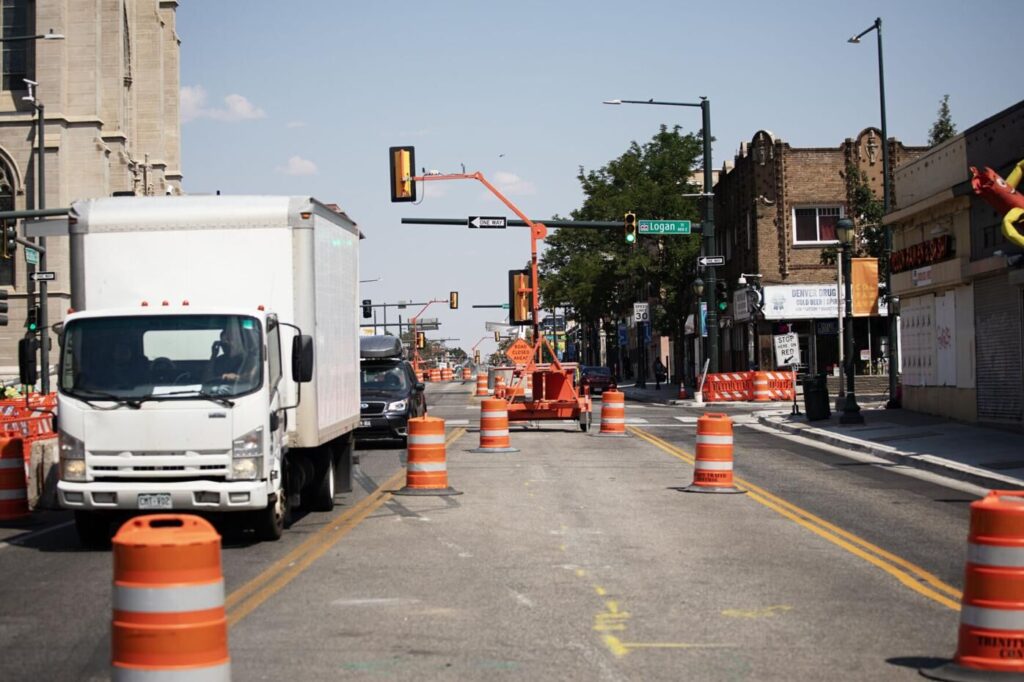Colorado lawmakers want to end speculative ticketing, other ‘deceptive’ ticket sale practices

When Madonna announced her 40th anniversary world tour last month, ticket prices on numerous reselling websites quickly climbed into the thousands of dollars – though the original tickets had not yet gone on sale.
This is a common practice in the event ticket industry known as “speculative ticketing,” in which companies resell tickets they do not yet own and customers are often not guaranteed to receive the tickets they purchase.
In Colorado, speculative ticketing and other ticket sale practices could soon be prohibited and classified as “deceptive trade practices” under Senate Bill 60.
Bill sponsor Sen. Robert Rodriguez said he wants to protect Colorado consumers and increase transparency in ticket sales, after public confidence in the industry has been shaken by recent incidents, including hundreds of Bad Bunny concert tickets turning out to be invalid during his world tour and Taylor Swift fans experiencing hours-long wait times for tickets costing thousands of dollars a pop.
“As state legislators, we can’t control or change the entire structure of the ticketing market, but we can address several things that will make a difference,” Rodriguez, D-Denver, said. “This isn’t going to stop people from buying tickets and selling them for profit. It’s just trying to let venues, fans and artists get tickets to who they’re intended to go to for the price they agreed to sell them at.”
The bill passed its first committee vote on Thursday. If approved by the full state legislature, the bill would classify the following trade practices as deceptive:
-
Selling a ticket without having possession of it
-
Selling a ticket that does not match its advertised description
-
Selling a ticket without disclosing the total cost including service charges and other fees
-
Increasing the price of a ticket once it has already been selected for purchase
-
Using copyrighted or similar web designs, URLs or other symbols to sell a ticket, leading consumers to believe they’re buying from an event’s official ticket seller instead of a reseller
-
Using computer software, or bots, to automatically purchase a large number of tickets or circumvent ticket limits – which was outlawed federally in 2016
The bill would also allow event operators to revoke or restrict tickets that are purchased or sold through deceptive trade practices – a provision that garnered controversy from the event ticket industry.
Critics argued that giving event operators this power would benefit the one company that’s been behind the recent ticketing fiascos: Ticketmaster.
Resale companies Vivid Seats and StubHub said they fear Ticketmaster would abuse this power to void any tickets purchased from its competitors, as Ticketmaster and its parent company Live Nation own over 200 venues worldwide and control the ticketing at 70% to 80% of major concert venues.
“We are very concerned that Senate Bill 60 is a Trojan horse that will strengthen Live Nation’s power,” said Ryan Fitts with Vivid Seats. “The enforcement structure for this bill would be ripe for abuse and we cannot support it.”
Rodriguez said this portion of the bill was never intended to apply to Ticketmaster and amended the bill Thursday to clarify that an event operator is a person who owns or operates a venue, not a venue’s primary ticket seller. Ticketmaster is the primary ticket seller of 13 venues in Colorado, with the over 55 other major venues throughout the state using companies such as AXS and Eventbrite.
With this amendment, Ticketmaster would only be able to revoke or restrict deceptively purchased tickets at the three Colorado venues that it exclusively owns: the Fillmore Auditorium, Marquis Theater and Summit, all in Denver.
Despite this change, Vivid Seats and StubHub still opposed the bill, as did the National Consumers League and the Sports Fan Coalition. Besides bolstering Ticketmaster – which supports the bill – the groups largely argued the legislation should not prohibit speculative ticketing, likening it to paying someone to wait in a ticket line for you. However, local venue owners said speculative ticketing often leaves fans without any ticket at all.
Michael Goldberg, owner of the independent venue Belly Up Aspen, said just last week a woman and her son flew to Aspen from Houston for an event with speculative tickets purchased from a reseller. The night before the show, Goldberg received a frantic email from the woman saying they were just informed by the reseller that they did not get the tickets and wouldn’t be able to attend the event, which was meant to be a birthday gift for her son.
“We ended up letting these people in because I thought that was the right thing to do,” Goldberg said. “There are many aspects of this bill that are very important for venues like us.”
Goldberg also said his venue regularly experiences scammers who buy a ticket for an event, then sell several copies of the tickets to multiple people. Only the first person with the ticket is allowed in the event, and the rest have to be sent away.
Owners of venues, including the National Western Complex, Ball Arena, Larimer Lounge and the Fox Theater, said they experience situations like these almost daily. They also spoke of resellers using bots to circumvent ticket limits, buying hundreds of tickets at once to resell at higher prices. While the events may sell out, if the resellers do not find someone else to buy the tickets, the events end up being way emptier than the venue prepared for.
“The venue is staffed up with a full production: bar, security, box office staff. What we thought was a sold-out show is only 60% to 70% full because the resellers couldn’t get rid of their tickets,” said David Weingarden with Z2 Entertainment and the Colorado Independent Venue Association. “Now, we’ve lost 30% to 40% of our anticipated food and beverage revenue, our labor costs are unnecessarily high. … Everybody loses except for the secondary ticket sellers.”
With the bill, venues would be able to cancel tickets of resellers using illegal bots or individuals who have previously purchased tickets and sold invalid copies to prevent the fraud from happening again.
Also, under the bill, engaging in deceptive trade practices would result in a fine of $10,000 to $20,000 for the first violation, $25,000 to $50,000 for the second violation, $100,000 to $200,000 for the third violation, and $1 million to $2 million for the fourth or any subsequent violations.
The bill would still allow individuals to resell their own tickets, unless the tickets were donated to them for free as part of a charitable event or offered in compliance with the Americans with Disabilities Act.
The Senate Business, Labor and Technology Committee voted, 7-1, in support of the bill Thursday, sending it to the full Senate for consideration. Only Sen. Perry Will, R-New Castle, voted against the bill, without comment.
Rodriguez and fellow bill sponsor Sen. Mark Baisley, R-Woodland Park, said they will continue working with opponents of the bill to try to reach a compromise and will possibly introduce additional amendments when lawmakers debate the bill on the Senate floor in the coming weeks.
“The amendments do not make it perfect, but it makes it close enough that I think it’s a worthy consumer protections bill,” Baisley said. “Let’s do what we need to do to rein in the Wild West that has been ticket sales.”














